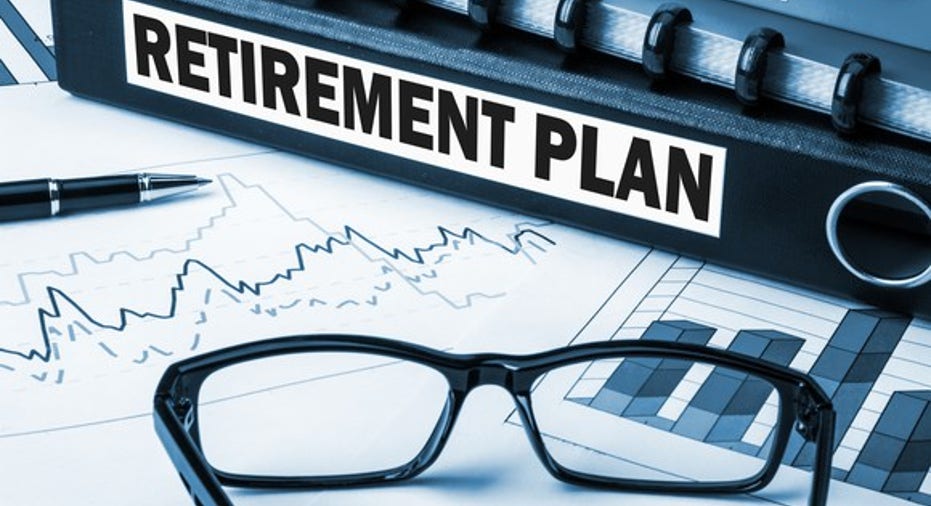3 Things to Know About Your 401(k) Retirement Plan

Americans' retirement assets totaled $24.1 trillion at the end of March, and fully 20% of that -- nearly $5 trillion-- was in 401(k) plans. Clearly, 401(k)s have become critical tools helping many of us save for retirement. For best results with your own 401(k) and in order to build the biggest nest egg you can, learn more about 401(k)s and how to make the most of them.
Image source: Getty Images.
Image source: Getty Images.
You may be able to contribute to aRoth401(k)
Selena Maranjian: Many people don't realize it, but their workplace might offer not only a traditional 401(k) plan, but also a Roth version of it. Roth 401(k)s are growing in number, with more than 60%of 401(k) plans offering them.
With a traditional IRA and 401(k), you contribute pre-tax money that reduces your taxable income and, therefore, your tax bill for the year. So if you earn $70,000 and contribute $10,000, your earnings fall to $60,000, saving you tax dollars upfront. When you with draw the money in retirement, it's taxed as ordinary income to you. With the Roth IRA and 401(k), you contribute post-tax money that doesn't deliver any upfront tax break (income of $70,000 and a $10,000 contribution leaves you with $70,000 in income). But you eventually get a big tax break when you withdraw from the account in retirement because you get to take all the money out of the accounttax-freeif you follow the rules.
That's powerful. Imagine, for example, that you sock away $10,000 annually in a Roth 401(k) that grows by an annual average of 8% for 25 years. It will end up worth about $790,000, all of which you should be able to enjoy without being taxed on it. (To appreciate the growth, remember that 25 years of $10,000 investments cost you a total of $250,000.) Note, too, that for really big ultimate totals, you should be saving aggressively and investing effectively, such as in broad-market stock index funds. Grab all available employer matching dollars, too.
Consider participating in your employer's Roth 401(k) plan if there is one. If there isn't, perhaps ask your benefits department to consider adding one.
Low fees lead to better retirements. Image source: Getty Images.
Your options are limited, so look for the lowest fees
Brian Stoffel: The retirement plan your employer offers should be the starting place for your nest egg. That's because most 401(k)s offer match funds from the company you work for. Essentially, this is free money -- so take advantage!
At the same time, however, it's important to note one of the key drawbacks of 401(k)s: Your investment options are limited to what is offered under your plan. Typically, you'll meet once a year with a representative of the company that manages your 401(k). For younger workers especially, those meeting are usually short and often involve you going along with whatever your advisor says.
I implore you, however, to ask lots of questions about fees. Compared with investing your own money, you don't have too much control over where your investment goes. While it might sound like a small deal, the difference between investing in a fund that has annual fees of 0.10% and one that charges 1.00% can be monumental over time. Not only is the money that you give away through fees gone forever, but so is all of the future growth that would otherwise come your way. Added up over decades, that's a big deal.
When it doubt, go with the low fees.
Image source: Getty Images.
You may not have to wait until you're 59 1/2 to use your money
Matt Frankel: In general, you must be at least 59 1/2 years old before you can tap your retirement account without paying a penalty. There are a few exceptions to this, and one big one that many people aren't aware of is known as the "separation from service" exception.
According to this rule, you can withdraw money from your 401(k) penalty-free during or after the year in which you turn 55 if you're no longer at your job. It doesn't matter if you quit and get another job, get fired, or retire. As long as you're no longer working for the employer who sponsors the plan, your retirement age for 401(k) purposes is 55.
In addition, you can choose to take withdrawals as a series of substantially equal payments spread over your expected lifetime, regardless of age. You could also use 401(k) funds early to pay for unreimbursed medical expenses in excess of 10% of your AGI, or if you become disabled.
The standard retirement age may not necessarily apply to the funds in your 401(k). If any of the situations here apply, you could have the option of tapping into your 401(k) early. Don't do so unless you really have to, though, as leaving the money in the account longer can help it grow.
The $15,834 Social Security bonus most retirees completely overlook If you're like most Americans, you're a few years (or more) behind on your retirement savings. But a handful of little-known "Social Security secrets" could help ensure a boost in your retirement income. For example: one easy trick could pay you as much as $15,834 more... each year! Once you learn how to maximize your Social Security benefits, we think you could retire confidently with the peace of mind we're all after.Simply click here to discover how to learn more about these strategies.
Try any of our Foolish newsletter services free for 30 days. We Fools may not all hold the same opinions, but we all believe that considering a diverse range of insights makes us better investors. The Motley Fool has a disclosure policy.



















